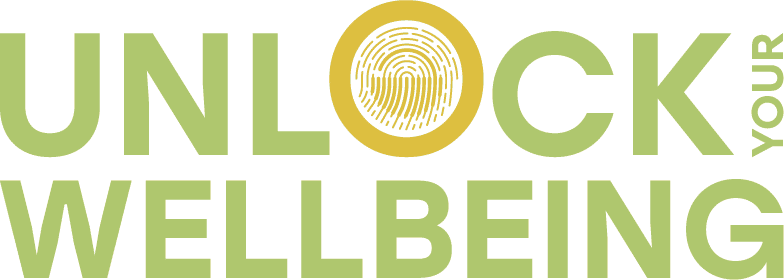Getting Back to the Office
10 of the most important things you can do for your workplace
So – you work in HR or you are a Manager and are feeling the weight of responsibility on your shoulders to do “the right thing” for your employees returning to the office in September?
DON’T PANIC!
Consider the following 10 key first steps and priorities – and remember, most people will actually settle back quickly after a period of transition.
- Vaccines – what is your position? No Jab, No Job? This is unlikely to be an acceptable legal position (apart from a few settings such as Care Homes) Employers risk being sued for unfair dismissal, discrimination or breaches of human rights. On the other hand, many people say that they are not prepared to risk being in an office with someone who has NOT been double vaccinated – it is a risk to their health. You might have to insist on mask wearing and frequent, regular hand sanitising in public areas, plastic screens for those not vaccinated – but again could you be accused of discriminatory behaviour? What does your Health & Safety policy say – has it been updated to be Covid compliant?
Are you having a hybrid return where some will work from home on a number of days? What about training, meetings, conventions etc where people may need to be closer together? Are you satisfied that you are able to protect everyone?
The most successful way is likely to be to ask your employees what they would like to happen. You might get a mixed response – some desperate to get back to the office, others reluctant, even anxious. Excellent Management communications skills are going to be required – remember the maxim “no decision about me, without me”. Can you be flexible – can you come up with solutions or can others be invited to suggest solutions? Education about vaccines and discussions with those not yet vaccinated may be all that is needed.
- Patience with the Transition – What is your WELCOME BACK plan and strategy? Are you offering a hybrid system of days WFH and days in the office? Staggered start and finish times? Fun activities to get everybody talking again? Remember some people – in fact MANY people, will be slightly de-skilled in their communications, not having had much interaction. How can you ease this? Use your intranet, vlogs, TIK TOK, and other similar platforms for people to say hi to everyone and precis their Covid experience in fun ways. How about a noticeboard solely for people to say how they are feeling in one word/phrase as they leave each day? Monitor it and ask for ideas as to what will help.
- Office Cleanliness – Will people have confidence that things are super hygienic? You may have to increase office cleaning – especially bathrooms and kitchen areas. What about lifts? How safe do people feel? Make cleaning spaces a new normal – keyboards, handles, surfaces – provide plenty of wipes etc.
- One to Ones – make these weekly if possible at first and try introducing Wellbeing Action Plans (contact us for examples of these) as these will prove a useful guide for you to have a conversation about people’s individual circumstances. Check with employees how often they want their one to ones – and make sure they happen.
- Big up your Employee Assistance Programs (EAP’s) and your Mental Health First Aiders if you have them. Make your “welcome back” include up to date information about how people make contact with either of these and emphasis that they are totally confidential. They don’t need a manager’s permission to use them.
- Consider Lunch’n’Learns and other Wellbeing initiatives. “Wellbeing Wednesday” “Monday Motivations” and similar are good starting points – have regular wellbeing initiatives, even if it is just notices in lifts, kitchens/water cooler areas and – our favourite – backs of toilet doors, for messages – make them interesting, include topics such as nutrition, sports, etc to encourage good positive wellbeing. (Change them weekly, or they don’t get noticed). We provide a wide selection of Lunch’n’Learns and check out Ethical Reading’s Services page for dozens of other suggestions to keep positive wellbeing on the agenda, talked about – help create a space where people feel safe and understood and able to be open and honest.
- Encourage Actos of Random Kindness – Appreciate people doing something good – you can even reward – maybe they get to go home early on a Friday, or have a TOP parking space exclusively for a week – it’s up to you! Encouraging people to be kind to others, when frankly many of us are feeling jittery and raw, helps everyone – the person being kind benefits as well as the recipient of their kindness and this prosocial culture is needed more than ever.
- Refresh, update or write your own Wellbeing Policy – so much may have happened to your colleagues in the last couple of years, that work needs to be a safe and meaningful place for them to be. Get involvement from a broad steering group to get your Wellbeing Policy inclusive and robust, covering physical and mental health
- Be Flexible, Be Patient – most people will make a good return after the initial difficulties and transition. Be patient – public transport has been a no-no for many for over a year. Driving distances hasn’t happened much either. Offer what help you can – for instance is this a good time to think of a cycle to work scheme? How much WFH is acceptable or sustainable? And be aware that this might change. We have had to think the unthinkable for many months – reframe this as having permission to be creative and able to do things differently. Provide training for any skills gap – so many new digital platforms are now the “norm” but not everyone will be up to speed – do a skills analysis of what is now required. Measure stress and wellbeing – there are many tools that you can use to do this. Measure it now, as a baseline, so you have something to compare it to when you repeat in 6 months or a year.
- Lead by example – show that you as a Manager are, deliberately and on purpose, looking after your wellbeing – it is a priority!
Anne-Marie Gawen, from Unlock Your Wellbeing, is a Wellbeing and Mental Health Trainer. Delivering many well-known training packages, such as Mental Health First Aid (2 day, 1 Day, Half Day, Refresher and MHFAider support packages) to more bespoke and in house packages.
Her Mission in Life is to increase the Compassion Quotient of the communities she lives and works in.


